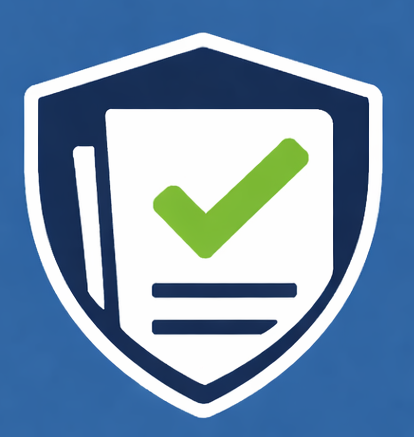The 5 Education Certifications That Lead to Higher Salaries
5 Education Certifications That Lead to Higher Salaries
For teachers and education professionals, earning the right certification can mean more than just career advancement — it can directly impact your paycheck. In 2025, many school districts and institutions reward additional training and specialized credentials with higher salaries, better job opportunities, and greater career stability.
If you’re looking to boost your income, here are five education certifications that consistently lead to higher salaries.
1. National Board Certification (NBPTS)
- Average Salary Boost: $5,000–$10,000 annually (varies by state/district)
- Requirements: At least 3 years of classroom teaching experience; portfolio and assessment process
- Cost: ~$1,900 for the full certification process (scholarships and state funding may be available)
- Career Paths: Lead Teacher, Mentor Teacher, Department Head, Instructional Coach
- Why It Pays More: Many states and districts offer salary supplements or bonuses for National Board Certified Teachers.
📘 Recommended Resource: National Board for Professional Teaching Standards (Official Site)
2. TESOL/TEFL Certification
- Average Salary Boost: 10–20% higher for English-as-a-second-language (ESL) roles
- Requirements: No prior teaching license required; bachelor’s degree preferred for many programs
- Cost: $200–$2,000 depending on the course provider and length
- Career Paths: ESL Teacher (K-12), Online English Instructor, International Teaching Roles
- Why It Pays More: With ESL demand growing in the U.S. and abroad, certified teachers can earn significantly more, especially when working internationally.
📘 Recommended Resource: International TEFL Academy
3. Special Education Certification
- Average Salary Boost: $3,000–$8,000 annually (varies by district)
- Requirements: State-approved coursework or endorsement program; valid teaching license
- Cost: Varies by state/university program (typically $1,000–$3,000)
- Career Paths: Special Education Teacher, Inclusion Specialist, Behavior Interventionist
- Why It Pays More: Special education teachers are in high demand. Districts often offer higher pay, stipends, or signing bonuses to attract and retain qualified special ed teachers.
📘 Recommended Resource: Council for Exceptional Children
4. Educational Leadership/Administrator Certification (Principal/Administrator License)
- Average Salary Boost: Transitioning to administrative roles can add $20,000–$40,000 annually
- Requirements: Master’s degree in education/leadership, state licensure exams
- Cost: $3,000–$10,000 depending on graduate program
- Career Paths: Principal, Assistant Principal, Curriculum Director, District Administrator
- Why It Pays More: Leadership positions come with significantly higher salaries and broader responsibilities.
📘 Recommended Resource: Educational Leadership Programs (U.S. Dept of Education Database)
5. Reading Specialist Certification
- Average Salary Boost: $2,000–$6,000 annually (plus stipends in some districts)
- Requirements: Teaching license, specialized graduate coursework in literacy
- Cost: $1,500–$5,000 depending on university program
- Career Paths: Reading Specialist, Literacy Coach, Interventionist, Curriculum Coordinator
- Why It Pays More: Reading specialists are in demand for their ability to improve student literacy, a top priority for schools. Certified specialists often qualify for stipends and higher pay scales.
📘 Recommended Resource: International Literacy Association
Salary & Certification Comparison Chart
| Certification | Avg Salary Impact | Requirements | Cost Range | Career Paths |
|---|---|---|---|---|
| National Board Certification | +$5,000–$10,000 | 3 years teaching, portfolio assessment | ~$1,900 | Lead Teacher, Mentor, Instructional Coach |
| TESOL/TEFL | +10–20% | Bachelor’s degree (preferred) | $200–$2,000 | ESL Teacher, Online Instructor, International Educator |
| Special Education | +$3,000–$8,000 | Teaching license, state program | $1,000–$3,000 | Special Ed Teacher, Inclusion Specialist |
| Educational Leadership/Admin | +$20,000–$40,000 | Master’s + licensure exam | $3,000–$10,000 | Principal, Curriculum Director, Administrator |
| Reading Specialist | +$2,000–$6,000 | Teaching license, literacy coursework | $1,500–$5,000 | Reading Specialist, Literacy Coach |
Invest in You
Investing in the right certification can pay off in both salary and career satisfaction. While some require significant time and money, the return on investment is clear: more recognition, higher income, and greater opportunities.
Pro Tip: Before enrolling in a program, check your state or district policies — many offer salary bumps, stipends, or tuition reimbursement for certain certifications.
If you’re serious about advancing your career, choose the certification that best matches your teaching passion and long-term goals — and let it work to boost your paycheck.
FAQs About Education Certifications
1. Is National Board Certification worth it in 2025?
Yes. In many states, teachers receive salary bonuses or stipends for achieving National Board Certification. On top of pay increases, it’s considered one of the highest honors in teaching.
2. Which education certification is the easiest to get?
TESOL/TEFL certifications are often the most accessible. They usually require a bachelor’s degree (not always in education) and can be completed in a few weeks to a few months, depending on the provider.
3. Do principals really make more than teachers?
Yes. Administrators typically earn $20,000–$40,000 more annually than classroom teachers, but the role comes with greater responsibility, longer hours, and leadership expectations.
4. Which certification is best for a new teacher?
TESOL/TEFL and Reading Specialist certifications are great add-ons for newer teachers. They open up more job opportunities and can lead to stipends or higher pay early in your career.
5. How long does it take to become a Reading Specialist?
Most programs take 1–2 years if done part-time while teaching. Some universities offer accelerated options that can be completed in under a year.







